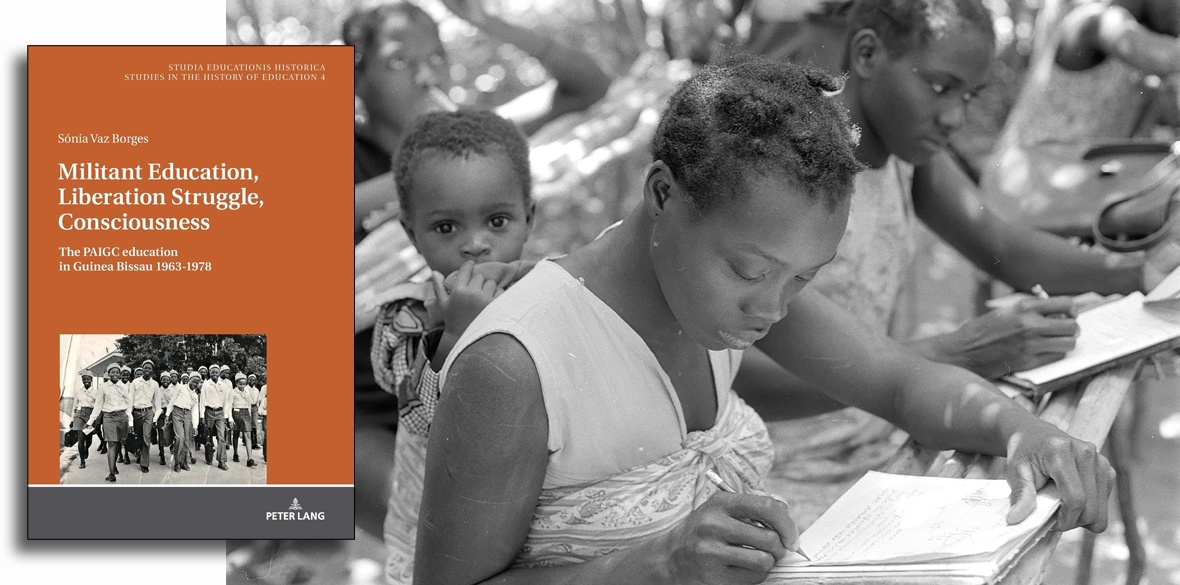This is the last article you can read this month
You can read more article this month
You can read more articles this month
Sorry your limit is up for this month
Reset on:
Please help support the Morning Star by subscribing here
Militant Education, Liberation Struggle, Consciousness: The PAIGC Education in Guinea Bissau 1963-1978
by Sonia Vaz Borges
(Peter Lang Publishers, £40)
“CHILDREN are the flowers of our struggle and the main reason for our combat,” liberation-movement leader Amilcar Cabral once declared. Education was at the heart of the long war against Portuguese colonialism waged by the African Party for the Independence of Guinea and Cape Verde (PAIGC) that he headed.
The same applied to their comrade parties, Frelimo in Mozambique and the MPLA in Angola, and this book by Portuguese scholar Sonia Vaz Borges is a moving and timely reminder of the profoundly original and democratic structures of learning established by the PAIGC half a century ago.
There is much to learn from that experience and to creatively apply by teachers today. The Guinean militants’ belief in education was absolute, but this was the contrary of passive or merely receptive learning.
The PAIGC saw schools in entirely active or, as Franz Fanon had put it, “actional” dimensions. For them, education was constructed “to enable students and teachers to overcome the distance between knowing and knowing/doing.” This approach had grown from necessity in the forested “zonas libertadas” that their soldiers had set free in their armed struggle.
As one of their combatants described it: “We were in the forest. You would search for trees, cut the branches. We would make tables out of them. The blackboard would be hung in a tree, and in this way the teacher would give the classes.”
Whether it was tropical rain forest or mangrove swamp, the zonal schools would be completely integrated into the environment, which created the slogan: “Our forest, our friend” and gave the militants a working and living respect for the natural world. They became essential environmentalists as well as revolutionary educators.
Such schooling became as much an act of imaginative pedagogy as a labour of practical reality. As Borges describes it, it was a condition of learning “to imagine a struggle for the world beyond the colonial structure and the practices of oppression, exploitation, racism and capitalism” — all the inheritance of imperialism.
It became the most fertile of opportunities “to know ourselves to ourselves” after centuries of colonial alienation and assimilation. And it was an active antidote to the “toxic residues of the mind” that European subjection left in its wake.
Education based on the learning methodology of the schools in the zonas libertadas became the preparation for students “of a new life, so they could see the difference between the colonial era and the liberation struggle and how the country would be when it became independent.”
Borges stresses that just as survival in the struggle involved an active adherence to transformational behaviour, such action would be applied to conduct within schools and that the fount of such would be the constant exercise of criticism and self-criticism.
It also involved a respect for history and the oral tradition. The literacy campaign became crucial, as well as an embrace of African and Creole languages — for centuries pronounced as inferior by colonial educators — and the narratives of the elders, now the “walking archives” of the new nation.
Reading about these educational achievements in 2021 is both deeply instructive and inspiring. Borges’s book, punctiliously researched and cogently written, should be read and discussed by teacher educators and trainees, for its interpretation of the PAIGC’s truthful, vibrant and creative educational processes is real and vital.











